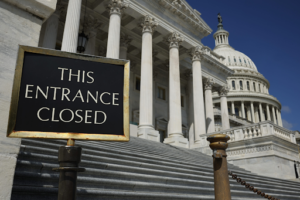When I received the email stating all breakout chapels were canceled, I did not understand why. When I read that breakout chapels were canceled to increase campus unity, I laughed. When I considered that “my” breakout chapels, chapels I had attended for three and a half years, would not meet in my final semester of college, I was angry.
Why would a university, which had so proudly promoted its Ethos program, restrict spiritual opportunities for its students? Furthermore, why would the cancellation of the Ethos program imply a cancellation of small chapels, many of which existed before the Ethos program?
Growing up in the Church of Christ, I find comfort in the familiarity of Big Chapel: a worship service with acapella singing, a biblical lesson and a group prayer.
But the setting of Big Chapel is limited. In Big Chapel, marginalized voices are lost, interactions become impersonal and opportunities for representation become few.
For the most part, I go to Big Chapel when I need a kudo.
By contrast, I go to my departmental chapel or club devotional when I want community. I go to Beam, Safe at Home or Taking Sides when I want to ask hard questions and have my faith challenged. I go to Spanish Chapel when I want to hear from my peers who share cultural experiences that differ from my midwestern upbringing.
Granted, the suggestion for these groups to meet on their own time seems reasonable at first. But, between classes, work, club activities and general living, the likelihood of finding a widely accessible time for all chapel attendees is low. The daily 11 a.m. pause across campus ensured a time for students, staff and faculty to attend a chapel and connect with various on-campus communities.
I do not want to have hard feelings toward the Oklahoma Christian administration or board. But I never heard a legitimate explanation for the decision to cancel breakout chapels. Even the creation of a chapel task force does not justify the sudden cancellation of breakout chapels across campus.
And that makes me wonder if something more problematic is at play.
Oklahoma Christian has a history of responding adversely to diverse groups. Only recently has Oklahoma Christian witnessed the reinstatement of LASO as well as the creation of the Native American Student Association and the Diversity, Equity and Inclusion program. We are not a proportionately diverse campus.
So, when some of the most diverse spaces on campus—in race, gender, nationality, spiritual beliefs, etc.—are removed without good reason, I become skeptical of the underlying motivation.
It is ironic and absurd that a Christian university would limit spiritual opportunities for its students. I can only assume that someone with power over the university disliked the content or structure of some small chapels and wanted them shut down. Of course, singling out certain chapels would lead to another publicity “scandal.” To regulate these spaces, there would have to be no apparent favoritism.
Now is the part where the defense attorney cries, “Objection! Speculation!” And they would be correct.
I hope I am wrong. I do not want to think that the administration, board of trustees, or crucial donors of Oklahoma Christian would demand their students have a homogeneous college experience. It grieves me to see a university I love hurt its students in this way.
Regardless of why breakout chapels were canceled, the fact remains that Oklahoma Christian needs spaces for student-initiated discourse that is not strictly regulated by the University. We need communities that challenge us beyond our comfort zones, that teach us to find unity in our differences.
Without engaging in diverse communities and forming friendships with people entirely unlike myself, I would not have undergone the spiritual and personal growth I have in the past few years. Moreover, I would not have learned how to listen to those who are different from myself.
As a Christian university, we cannot shut down spaces where people have genuine questions and genuine beliefs about who they are and how their identity relates to faith. I am not calling for total agreement in belief across the Oklahoma Christian campus. I am asking for university leaders to invite the marginalized in the way Jesus did: with love.
When the church in Corinth was divided, Paul wrote to them, “God has put the body together, giving greater honor to the parts that lacked it, so that there should be no division in the body, but that its parts should have equal concern for each other. If one part suffers, every part suffers with it; if one part is honored, every part rejoices with it” (1 Cor. 12.24-26). The church, when united in the Spirit, thrives on diversity. When the church attacks that diversity, we all suffer together.
If those involved in the decision to cancel breakout chapels happen to read this, please let the students, staff and faculty of Oklahoma Christian ask hard questions and listen to each other, both within and without the traditions of the Church of Christ. Our university cannot grow as a spiritual community if we are blind and deaf to the diversity of God’s children.
See the Talon’s records for a history of the Ethos program and its impact.











Be First to Comment